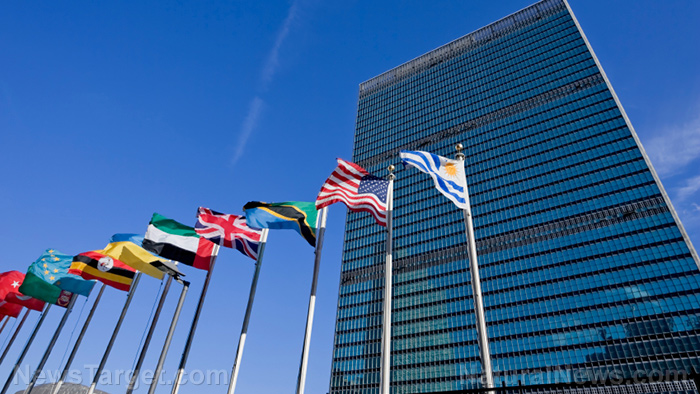 Parler
Parler Gab
Gab
- The United Nations (UN) is promoting the adoption of digital identity systems to address the global climate crisis, focusing on monitoring energy consumption and promoting sustainable practices.
- This initiative is part of the UN's Sustainable Development Goals (SDGs) under Agenda 2030, which aims to provide legal identity for all individuals, including birth registration, by 2030.
- The UNDP claims that digital IDs will allow governments to track populations during environmental emergencies, collect data on energy consumption and inspire "behavior change" to enhance sustainability measures.
- Critics and privacy advocates are worried about potential government overreach, intrusive monitoring and risks to individual privacy, including the potential for widespread surveillance and diminished personal freedoms.
- The push for digital IDs highlights the tension between effective climate action and preserving individual privacy, emphasizing the need for measures that respect democratic principles and individual freedoms.
Privacy concerns and potential risks
While the UNDP argues that digital IDs are essential for climate action, critics have raised concerns about potential government overreach and the risks to individual privacy. Opponents argue that such systems could enable intrusive monitoring and be used to enforce punitive measures, such as withholding access to financial resources for failing to comply with carbon tax regulations. Privacy advocates warn that digital IDs could lead to widespread surveillance and diminish personal freedoms. The precedent of the Wuhan coronavirus (COVID-19) lockdown enforcement and vaccine passports has raised concerns about the potential for these systems to be misused. The debate over digital IDs highlights the tension between the need for effective climate action and the preservation of individual privacy. As governments weigh the benefits of digital IDs against the risks, the future of this initiative remains uncertain. The UN's push for digital IDs as a tool to combat climate change reflects the organization's commitment to addressing global environmental challenges. However, it also raises important questions about the balance between public good and individual privacy. As governments consider implementing these systems, it is crucial to address the concerns of privacy advocates and ensure that any measures taken are in line with democratic principles and respect for individual freedoms. Visit Surveillance.news for stories related to global initiatives that aim to violate privacy. Watch the video below that talks more about the world's reliance on digital IDs. This video is from the Stand Up for Truth channel on Brighteon.com.More related stories:
Globalist organizations step up efforts to make digital IDs mandatory for people to participate in society by 2030. U.S. states are passing internet age verification laws as a cover to compel people into using digital IDs. Biden signs executive order expanding use of digital IDs in application process for public benefits. U.K. set to launch controversial DIGITAL ID system in 2025, sparking privacy concerns. Australian parliament passes digital ID law to enshrine the globalist control matrix down under. Sources include: YourNews.com SlayNews.com UNDP.org Brighteon.comTrump takes on Bank of America: Holding corporate giants accountable for conservative exclusion
By Willow Tohi // Share
California proposes ballot initiative to secede, sparking debate on state independence
By Belle Carter // Share
EU pushing through with enforcement of censorship tool Digital Services Act
By Ava Grace // Share
Canadian “Anti-MAGA” hat bearing the slogan “Canada Is Not For Sale” goes viral
By Arsenio Toledo // Share
CLIMATE ANXIETY: A manufactured crisis fueled by fear and propaganda
By Willow Tohi // Share
Governments continue to obscure COVID-19 vaccine data amid rising concerns over excess deaths
By patricklewis // Share
Tech giant Microsoft backs EXTINCTION with its support of carbon capture programs
By ramontomeydw // Share
Germany to resume arms exports to Israel despite repeated ceasefire violations
By isabelle // Share










